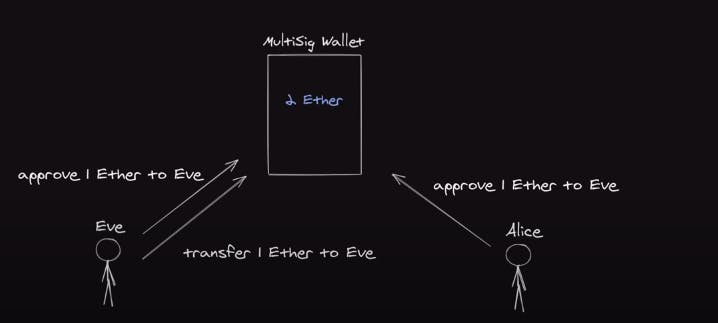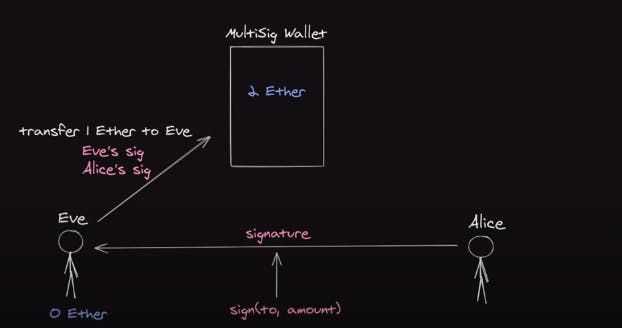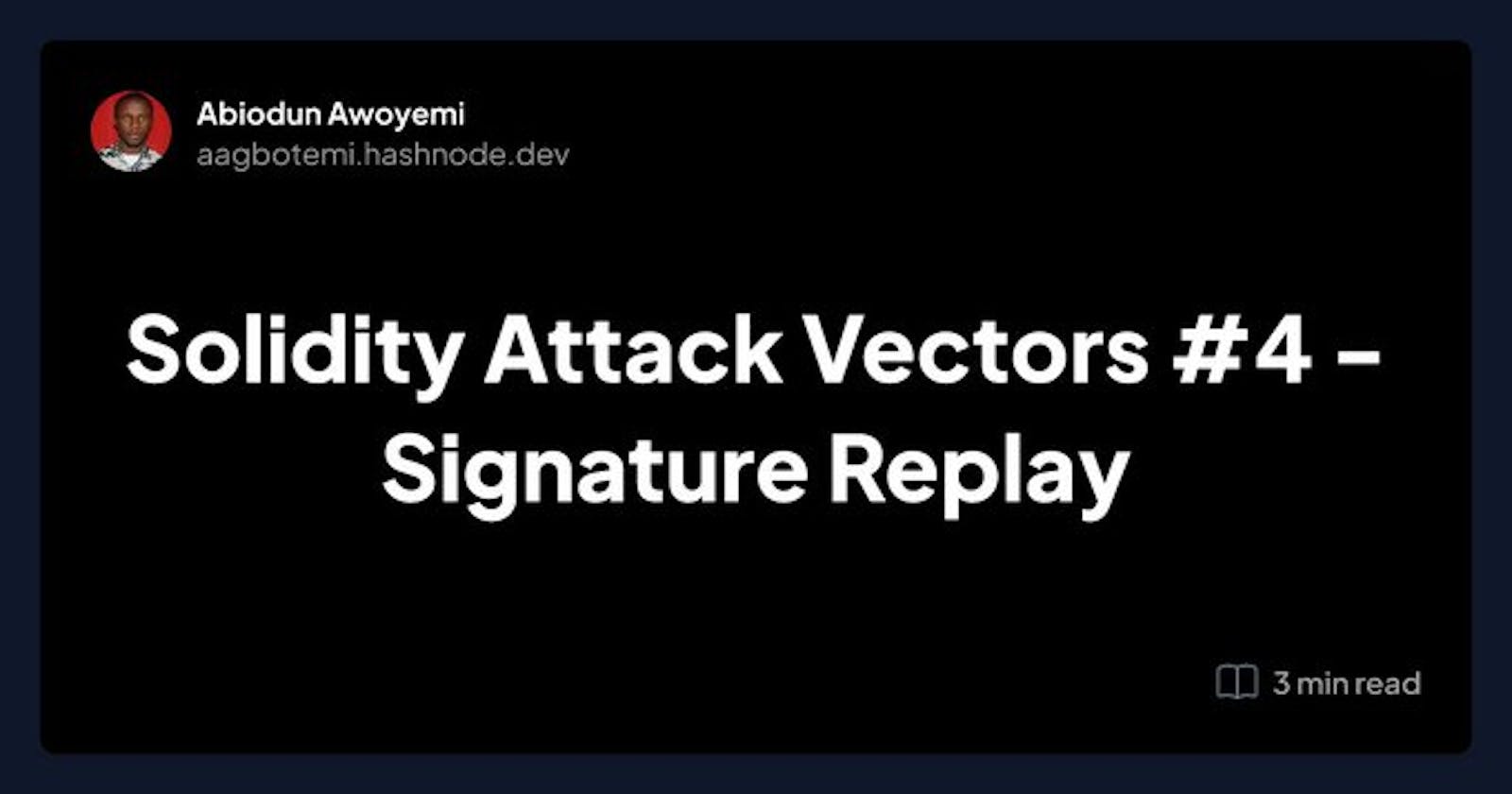Table of contents
Signature Replay is using the same signature to execute transactions multiple times. The benefit of signature replay is to reduce the number of transactions on-chain and perform a gas-less transaction, called meta transaction.
Take, for example, a multisig wallet controlled by Bob and Alice. Bob initiates a transaction for withdrawal, thereby approving himself to spend ether, Alice also approves Bob to withdraw ether, and the withdrawal is finally done making three transactions in total.

However, using a signature can help us reduce the transactions to one, Alice can send her signature to Bob off-chain, then Bob can send his signature together with Alice's signature into the contract.

Using the same signature, Bob can withdraw another ether without Alice's approval.
// SPDX-License-Identifier: MIT
pragma solidity ^0.8.17;
import "github.com/OpenZeppelin/openzeppelin-contracts/blob/release-v4.5/contracts/utils/cryptography/ECDSA.sol";
contract MultiSigWallet {
using ECDSA for bytes32;
address[2] public owners;
constructor(address[2] memory _owners) payable {
owners = _owners;
}
function deposit() external payable {}
function transfer(address _to, uint _amount, bytes[2] memory _sigs) external {
bytes32 txHash = getTxHash(_to, _amount);
require(_checkSigs(_sigs, txHash), "invalid sig");
(bool sent, ) = _to.call{value: _amount}("");
require(sent, "Failed to send Ether");
}
function getTxHash(address _to, uint _amount) public view returns (bytes32) {
return keccak256(abi.encodePacked(_to, _amount));
}
function _checkSigs(
bytes[2] memory _sigs,
bytes32 _txHash
) private view returns (bool) {
bytes32 ethSignedHash = _txHash.toEthSignedMessageHash();
for (uint i = 0; i < _sigs.length; i++) {
address signer = ethSignedHash.recover(_sigs[i]);
bool valid = signer == owners[i];
if (!valid) {
return false;
}
}
return true;
}
}
Preventive Techniques
Having a unique signature for every transaction by keeping track of every transaction that has been executed. This can be accomplished by including the _nonce_ in the signature and keeping track of the nonce in the contract. For the same code deployed at a different address, a signature replay can be prevented by including the address of the contract in the signature. To prevent an attack from the first case, the nonce can be included in the contract.
// SPDX-License-Identifier: MIT
pragma solidity ^0.8.17;
import "github.com/OpenZeppelin/openzeppelin-contracts/blob/release-v4.5/contracts/utils/cryptography/ECDSA.sol";
contract MultiSigWallet {
using ECDSA for bytes32;
address[2] public owners;
mapping(bytes32 => bool) public executed;
constructor(address[2] memory _owners) payable {
owners = _owners;
}
function deposit() external payable {}
function transfer(
address _to,
uint _amount,
uint _nonce,
bytes[2] memory _sigs
) external {
bytes32 txHash = getTxHash(_to, _amount, _nonce);
require(!executed[txHash], "tx executed");
require(_checkSigs(_sigs, txHash), "invalid signature");
executed[txHash] = true;
(bool sent, ) = _to.call{value: _amount}("");
require(sent, "Failed to send Ether");
}
function getTxHash(
address _to,
uint _amount,
uint _nonce
) public view returns (bytes32) {
return keccak256(abi.encodePacked(address(this), _to, _amount, _nonce));
}
function _checkSigs(
bytes[2] memory _sigs,
bytes32 _txHash
) private view returns (bool) {
bytes32 ethSignedHash = _txHash.toEthSignedMessageHash();
for (uint i = 0; i < _sigs.length; i++) {
address signer = ethSignedHash.recover(_sigs[i]);
bool valid = signer == owners[i];
if (!valid) {
return false;
}
}
return true;
}
}
